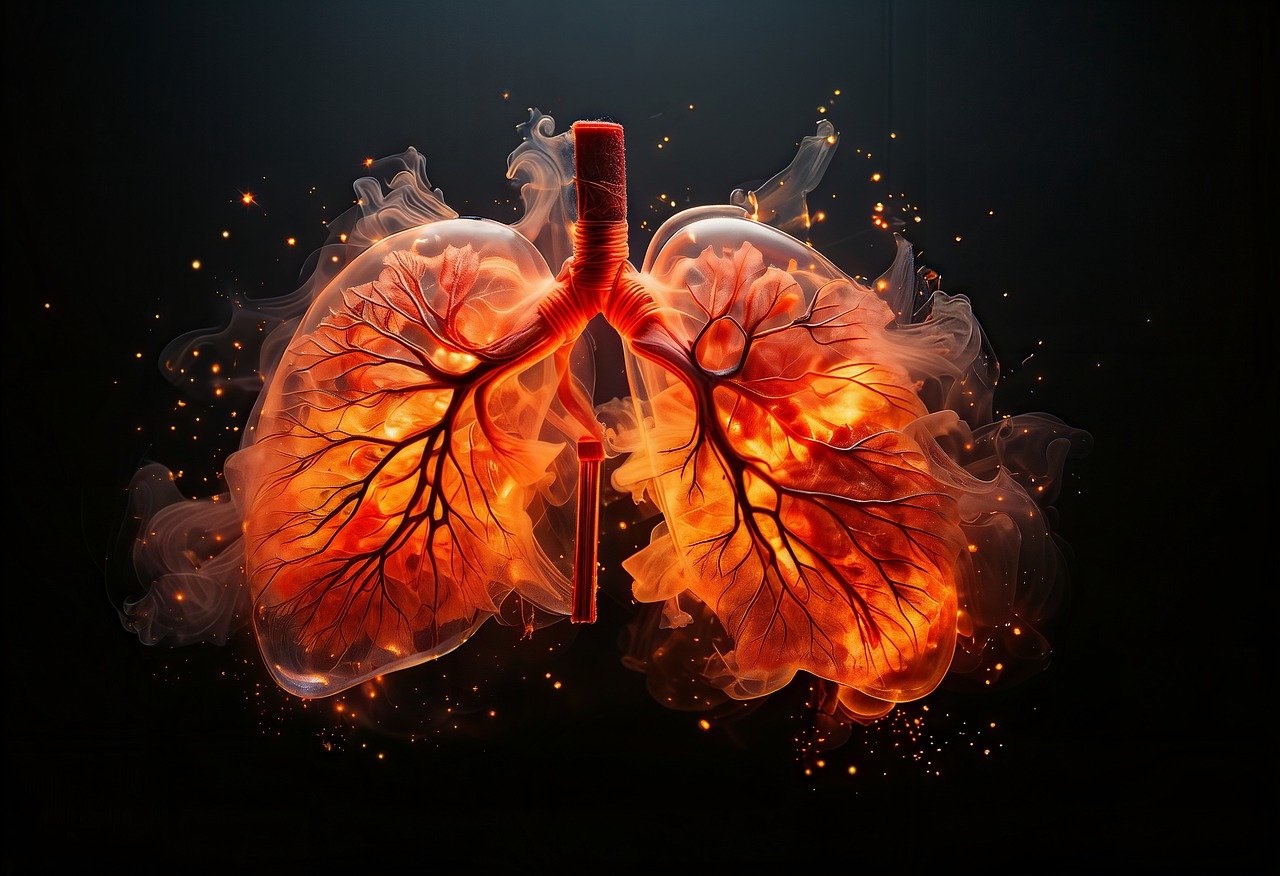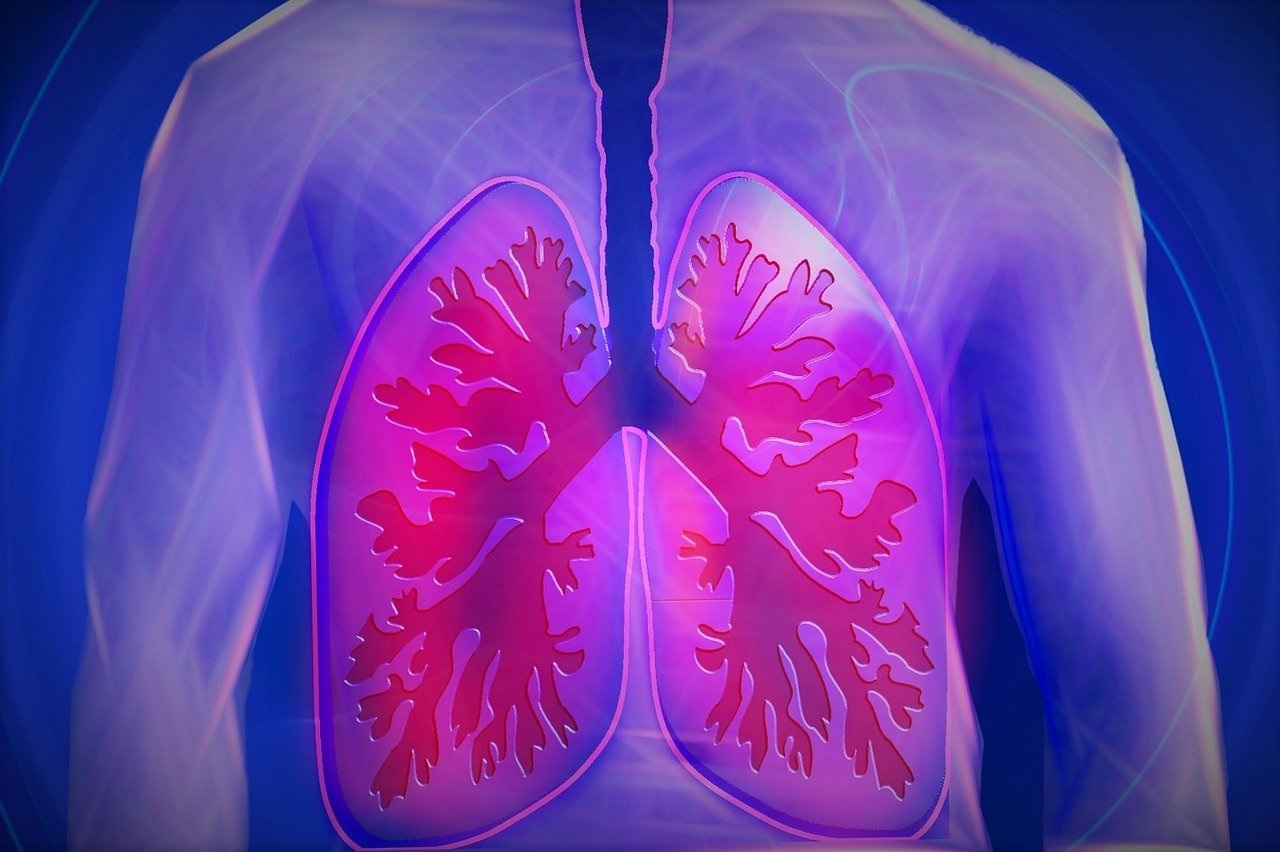Breathe Easy: A Comprehensive Guide to Healthy Lungs
Our lungs are the silent workhorses of our body. Every breath we take is a testament to their tireless function. Yet, lung health often goes unnoticed until compromised. This article delves into the fascinating world of the lungs, exploring how to keep them functioning optimally throughout your life.
The Lungs: A Breathtaking Marvel
Imagine two spongy, pink balloons nestled within your chest cavity. That’s a basic picture of your lungs. But beneath this simple image lies a complex network of airways and air sacs. Let’s take a closer look:
- Trachea (Windpipe): This sturdy tube connects your nose and mouth to the bronchial tree.
- Bronchi: These airways branch off the trachea, leading to each lung.
- Bronchioles: These even smaller tubes further divide, delivering air deep into the lungs.
- Alveoli: These microscopic air sacs are the powerhouses of gas exchange. Here, oxygen from inhaled air diffuses into the bloodstream, while carbon dioxide, a waste product, moves in the opposite direction for exhalation.
The Symphony of Breathing
Breathing is an involuntary process controlled by the brainstem. When the diaphragm, a dome-shaped muscle below your lungs, contracts, it pulls air into your lungs. Conversely, relaxation of the diaphragm pushes air out. This rhythmic cycle ensures a constant supply of oxygen and removal of carbon dioxide, vital for every bodily function.
Lung Health: The Pillars of Strength
Maintaining healthy lungs is an ongoing commitment. Here are key pillars to keep them functioning optimally:
- Quit Smoking: Smoking is the leading cause of preventable lung disease. Cigarettes contain over 7,000 chemicals, damaging delicate lung tissue and hindering oxygen uptake. Quitting smoking, regardless of how long you’ve been at it, offers immediate and long-term benefits for your lungs.
- Embrace Exercise: Regular physical activity strengthens your respiratory system. Exercise helps your lungs work more efficiently, allowing you to absorb more oxygen and utilize it effectively. Aim for at least 150 minutes of moderate-intensity exercise or 75 minutes of vigorous activity per week.
- Prioritize Clean Air: Air pollution poses a significant threat to lung health. Minimize exposure to secondhand smoke, outdoor air pollution, and indoor air contaminants like dust and mold. Consider air purifiers for your home and wear masks when air quality is poor.
- Nourish with a Healthy Diet: A balanced diet rich in fruits, vegetables, and whole grains provides your body with the essential nutrients needed for optimal lung function. These foods are packed with antioxidants that help combat inflammation and protect against lung damage.
- Manage Chronic Conditions: Certain medical conditions, like asthma and chronic obstructive pulmonary disease (COPD), can affect lung function. Working with your doctor to manage these conditions effectively is crucial for maintaining lung health.
- Vaccination is Vital: Vaccinations like the flu shot and pneumonia vaccine can help prevent respiratory infections that can damage your lungs.
Listen to Your Lungs: Recognizing Warning Signs
Our bodies often send warning signals when lung health is compromised. Be mindful of these symptoms:
- Persistent cough (with or without phlegm)
- Shortness of breath, especially during activity
- Wheezing (a whistling sound during breathing)
- Chest pain or tightness
- Frequent respiratory infections
- Fatigue
If you experience any of these symptoms, consult your doctor to determine the cause and receive appropriate treatment. Early diagnosis and intervention are crucial for maintaining good lung health and preventing further complications.
Beyond the Basics: Optimizing Lung Health
Here are some additional tips to give your lungs an extra edge:
- Practice Deep Breathing Exercises: Deep breathing techniques can improve lung capacity and reduce stress, which can exacerbate breathing difficulties.
- Stay Hydrated: Drinking plenty of water helps thin mucus, making it easier to clear from your airways.
- Improve Posture: Good posture allows your lungs to expand fully, enhancing oxygen intake.
- Explore Vocal Techniques: Singing and other vocal exercises can strengthen the muscles involved in breathing, promoting lung health.
- Manage Stress: Chronic stress can negatively impact your respiratory system. Relaxation techniques like yoga and meditation can help manage stress and improve lung function.
Breathe Easy, Live Fully
By incorporating these steps into your life, you can take charge of your lung health. Remember, healthy lungs are essential for a long and active life. By making conscious choices and prioritizing lung-friendly habits, you can ensure these remarkable organs continue to provide the gift of breath for years to come.
Frequently Asked Questions about Lung Health
Here are some commonly asked questions regarding lung health, along with answers to empower you with knowledge:
Q: How does air pollution affect lung health?
Air pollution, both indoors and outdoors, can irritate and inflame lung tissue. Fine particulate matter, a major component of air pollution, can lodge deep within the lungs, hindering oxygen exchange and contributing to respiratory problems like asthma and COPD.
Q: What are some occupations that pose a risk to lung health?
Certain jobs expose workers to dust, fumes, and other lung irritants. Examples include miners, construction workers, firefighters, and those working in factories with chemical exposure. Wearing appropriate personal protective equipment (PPE) is crucial in these occupations.
Q: Is vaping safe for my lungs?
The long-term effects of vaping are still under investigation. However, the chemicals present in e-cigarettes can irritate the lungs and potentially lead to lung damage. It’s best to avoid vaping altogether to safeguard your lung health.
Q: How can I improve my lung capacity?
Regular exercise, particularly activities that challenge your cardiovascular system like swimming, running, or cycling, can significantly improve lung capacity. Deep breathing exercises and lung-focused workouts like yoga can also be beneficial.
Q: I get winded easily. Could it be a sign of lung disease?
Shortness of breath, especially during exertion, can be a symptom of various conditions, including lung disease, heart problems, and deconditioning (lack of physical fitness). Consulting your doctor can help determine the cause and recommend appropriate treatment.
Q: Are there any natural remedies for lung health?
While a balanced diet rich in fruits, vegetables, and whole grains provides essential nutrients for healthy lungs, there’s no magic bullet or natural remedy proven to cure lung disease. However, certain herbs with anti-inflammatory properties, like ginger and turmeric, may offer some benefits when used alongside conventional treatment plans. It’s crucial to speak with your doctor before starting any herbal supplements.
Q: How can I quit smoking for good?
Quitting smoking is one of the best things you can do for your lung health. There are many resources available to help you on your journey. Consider joining a smoking cessation program, talking to your doctor about medication to aid quitting, and seeking support from friends and family.
Remember: This article provides general information and shouldn’t be taken as medical advice. Always consult your doctor for personalized guidance on maintaining optimal lung health.

